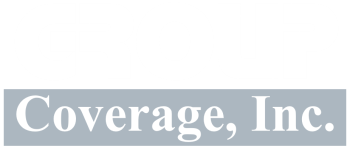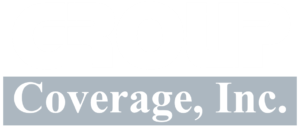Key Insurance and Risk Management Techniques for the Pharmaceutical Industry
by William F. Schaake, CIC, CRM, CLCS
Product Liability & Recall Insurance
Pharmaceutical manufacturers and wholesalers have unique liability exposures due to the nature of the operations such as, injury, illness, or death caused from ingestion or topical applications of their products. Strict guidelines and regulations enforced by the Food and Drug Administration or FDA to protect the public from bad and unsafe medicine. It’s important to protect consumers from products that contain tainted ingredients, been tampered, mislabeled or from mistakes in the production process including improper mixing procedures, wrong amounts and/or ingredients used, and a spoiled supply. The FDA also monitors the efficacy of prescribed medications. When the FDA requires a mandatory product recall, it places an announcement notifying the public as well personal injury attorneys about potential safety issues.
However, the FDA may not monitor all types of health aids such as over the counter medications, in particular alternative and holistic medicines and many types of vitamins and diet aids. With recent legislative proposals, this may be changing. Tied in with the increasing number of product liability claims of OTC or over-the-counter products, it is important for these manufacturers to safeguard their practices by implementing and enforcing strict monitoring and testing measures. These procedures should be designed to complement other quality control measures already in place and may involve periodic and random testing, lab reports, and benchmarking to compare results to the rest of the industry and the company’s own historical measures. The above are important risk management techniques employed by many quality drug manufacturers.
Wholesalers, importers, and distributors have a product liability exposure to any product manufactured outside the United States. Generally, the first entity taking title or transferring shipment can be deemed as the manufacturer of the product imposing product liability coverage. Since many foreign companies use international insurance companies not domiciled in the U.S., product liability claim disputes are difficult to settle. Hence, it is generally perceived that the first company to obtain possession of the product, whether by importation or by production, it considered the manufacturer and should carry product liability coverage.
Loss of Business Income and Harm to the Reputation
Other concerns of pharmaceutical manufacturers & wholesalers may include damage to stock and inventory, product recall & withdrawal, transit, equipment breakdown, loss of income, etc.
A major concern may be the shutdown of the operations by the authorities. This is often excluded and can have grave consequences in the event of mandatory recall. But equally important is the harm to the company’s reputation when this occurs. How can a company protect its persona? The loss of business income may provide a quantitative amount for continuing operating costs and net income before taxes, however the irreparable harm to the company’s name may be difficult to insure.
A common risk management technique is to immediately announce the company’s measures to act and control, follow through with the course and update on the progress. It is important to build back the confidence of the public as quickly as possible. Of course, sincerity and honesty are key components in the communication process.
Change In Temperature & Humidity
Many of the ingredients used in the production of medicines, vitamins, and other pharmaceutical products are susceptible to damage by change in temperature and humidity. Even if the policy includes a nominal amount of coverage, it may be subject to the terms, conditions, limitations, and exclusions. A very important consideration when there is damage to stock is the proximate cause. Was there an equipment breakdown that caused damage or was the result of a power failure of an outside source? These are two exposures that are either limited or excluded on many property forms and should be considered purchasing back if the stock and inventory is prone to damage by the failure of the refrigeration or HVAC systems.
Records & Data Coverage
Breach of Data, Valuable Papers & Records, Electronic Data Processing, HIPAA compliance are all types of exposures relating to the storage, filing, sharing, and processing of data. The liability aspects range from HIPAA and PCI compliance to Internet and Can Spam exposures. The property loss may be equally important to examine as there are many patent and key documentation storage concerns especially if a sold back-up system isn’t utilized. All these concerns are generally limited or excluded from most liability and property forms.
Machinery & Equipment
The machines and equipment used in a manufacturing and wholesale facility range from mixers, refrigeration, vacuums, ventilation & filtration systems, granulators, ovens & dryers, conveyor & transporting machines, forklifts, etc. These types of equipment are often custom ordered or designed and can cost a considerable amount to replace. Even damaged parts can take weeks to be delivered. The loss of income if a breakage were to occur can be even more concerning due to the unique nature and design of the machines. Hence, the importance of valuation of the equipment and the determination of a loss as well as the propensity of a claim cannot be over emphasized.
Mechanical breakdown can provide protection to the damage of machines that build pressure or rotate, but often overlooked is the damage to the computer components directing the machine. Many policies exclude coverage to the electronic data and processing equipment, especially if the damage occurred by an electrical disturbance. cause electricity, even if protected by power surge protectors are often the cause for damage to the electronic circuitry of the machines.
Commercial Auto or Truck Insurance
Liability
To protect liability exposures relating to the operations of vehicles used during business operations is normally covered by a commercial auto or truck policy. This may include coverage for auto and trucks that are owned, borrowed, or hired for the operations of the business. It is important to cover all types of vehicles including those that are not owned by the company as the liability exposure can extend to those driving their own vehicles during business operation. This coverage is often referred to as hired & non-owned auto liability.
Physical Damage
These policies generally offer coverage for physical damage losses due to comprehensive or collision claims. Comprehensive, sometimes referred to Specified Causes of Loss, generally provides payment for loss or damage due to claims not resulting from a collision. If specified causes of loss is used, then the covered items would be specific to what is listed in the policy. Collision coverage is the act of colliding with another object or the vehicle overturn. Most often, separate deductibles can be applied to the comprehensive or collision.
Commercial Umbrella or Excess Insurance
An umbrella policy typically adds an additional layer of liability coverage over the underlying or base limits. A follow form umbrella generally matches the coverage including the limitations and exclusions whereas an excess liability policy defines what is covered that can deviate from the underlying policy.
Workers’ Compensation & Statutory Disability Insurance
All states have workers’ compensation laws that require organizations to provide coverage or a means to pay for its employees’ claims in the event of an on the job injury or illness. Please refer to the insurance department or the department of labor in the state for which the business operates and the employees are located or work in. Statutory disability may also be required which provides coverage for off the job injuries and illnesses.
by William F. Schaake, CIC, CRM, CLCS © 2011-23 All rights reserved.

